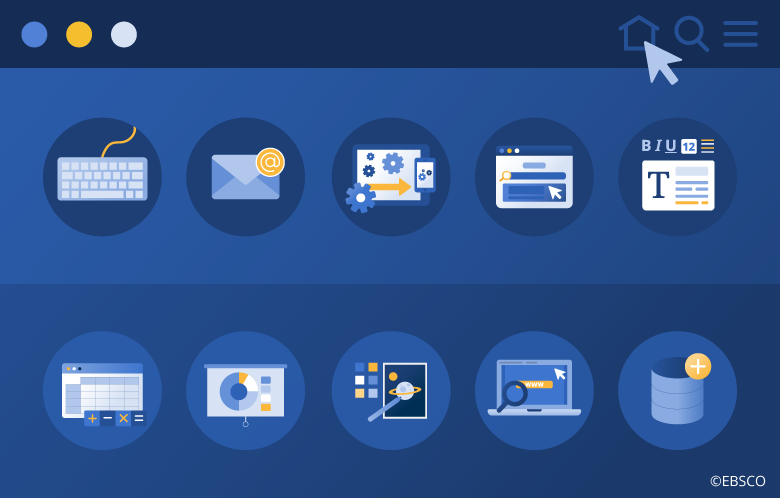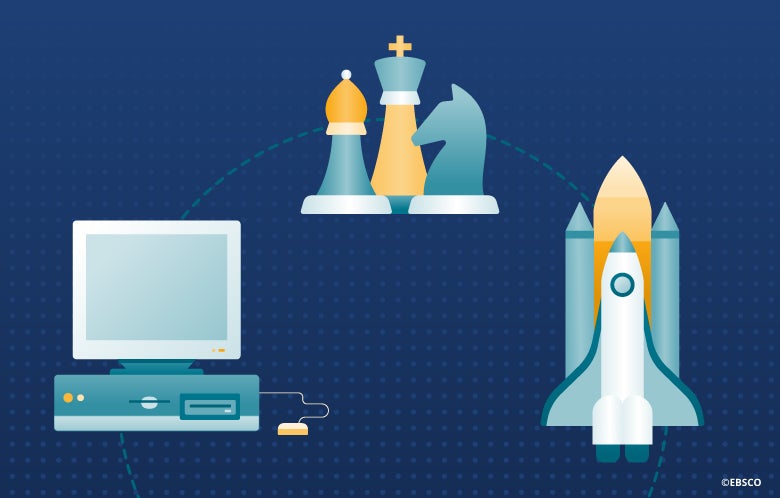Financial literacy is the ability to understand and make informed decisions about money. This includes spending, saving and investing, budgeting, building credit, borrowing money and repaying debt. Many college students graduate without understanding how to manage their money effectively, which often leads to financial struggles later in life. In fact, according to research, more than 40 percent of college students are not equipped with financial literacy knowledge and skills. Top personal finance concerns among college students include the cost of higher education, student loan debt and credit cards. (View the infographic, “Banking on Knowledge: Financial Literacy Among American College Students,” to learn more.)
As the financial world becomes increasingly complex and diverse, many academic libraries are seizing the opportunity to provide personal finance education to students and other members of their college communities. Here are five ways to get started:
- Provide access to reliable financial literacy resources.
College and university library collections should include relevant personal finance books, journals, databases and interactive learning tools such as FinancialFit. FinancialFit offers short, easy-to-understand personal finance lessons and videos to help individuals to make smart, informed financial decisions ― no matter where they are in their personal finance journey. Topics include monthly budgeting, managing debt, building credit, paying for college, living with roommates, starting work life, understanding taxes and more. Academic libraries can also curate and publish links to other online financial literacy resources such as webinars and podcasts.
- Integrate financial literacy into academic programs.
Many opportunities exist for personal finance education to be woven into a student’s academic experience. Librarians can work with faculty to develop standalone financial literacy courses or add personal finance topics or modules to existing business, math, health sciences or social sciences courses. The latter approach can help students develop personal finance skills that are relevant to their future careers.
- Partner with financial institutions or nonprofit organizations to deliver financial literacy workshops and seminars.
Academic libraries can team up with banks, credit unions and small business development centers to educate students on financial topics such as credit scores, student loan repayment, savings strategies, and managing the financial aspects of small business ventures. These partners can also provide resources such as financial calculators and budgeting tools for libraries to distribute to students.
- Host financial literacy events.
Fairs, game nights and other interactive activities can make learning about personal finance topics fun. These events can be promoted through social media and other marketing channels. April is Financial Literacy Month, a great time to launch a campaign to increase financial literacy among college students, faculty and other members of the college community. But don’t limit activities to just the month of April; keep them going all year long!
- Provide one-on-one financial coaching.
Academic libraries can hire financial experts or partner with financial institutions to offer one-on-one financial coaching to students. Financial coaching involves working with a financial expert to develop a personalized financial plan that includes strategies for budgeting, saving, investing, managing debt and retirement planning. This service can be especially helpful to those who need more guidance. Academic libraries might also consider initiating peer-to-peer financial literacy counseling programs.
Academic libraries can play an essential role in increasing financial literacy among students. By providing access to financial literacy resources, integrating financial literacy into academic programs, partnering with financial institutions, hosting financial literacy events and providing one-on-one financial coaching, academic libraries can help students develop the practical skills they need to make informed financial decisions throughout their lives. Furthermore, by improving students’ financial literacy with each new graduating class, academic libraries can contribute to the financial well-being of future generations.


